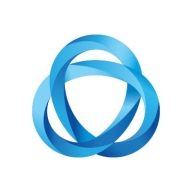

Find out what your peers are saying about CrowdStrike, Qualys, TrendAI and others in Attack Surface Management (ASM).
| Product | Market Share (%) |
|---|---|
| RiskIQ Illuminate | 1.0% |
| CrowdStrike Falcon | 7.5% |
| HackerOne | 5.0% |
| Other | 86.5% |
| Product | Market Share (%) |
|---|---|
| Tenable Nessus | 5.1% |
| Wiz | 6.6% |
| Qualys VMDR | 5.0% |
| Other | 83.3% |


| Company Size | Count |
|---|---|
| Small Business | 39 |
| Midsize Enterprise | 19 |
| Large Enterprise | 35 |
Threats are as vast as the internet. Defending your attack surface is a challenge of continuous change and global scale. RiskIQ Illuminate Internet Intelligence shows cyber threats relevant to your critical assets through connected digital relationships. It is the only security intelligence solution with tailored attack surface intelligence to uncover exposures, risks, and threats against your unique digital footprint, pinpointing what’s relevant to you—all in one place.
Tenable Nessus provides an efficient vulnerability management system with swift deployment and comprehensive scanning capabilities, making it an ideal choice for organizations seeking to enhance their security posture through effective threat detection and mitigation strategies.
Renowned for its top-tier vulnerability detection, Tenable Nessus offers a robust platform that integrates effortlessly across systems, enhancing threat management through automation, real-time monitoring, and customizable scanning options. Its broad asset coverage, including network devices and applications, coupled with ease of deployment, positions it as a go-to option for risk assessment and compliance. Organizations value its extensive reporting features and database, although they suggest enhancements in reporting formats and false positive detection. A more intuitive interface, improved cloud support, and competitive pricing models are sought after to cater to evolving enterprise needs.
What are the key features of Tenable Nessus?In industries such as finance, healthcare, and tech, Tenable Nessus is implemented for scanning internal and external networks, identifying risks, and ensuring data protection compliance. Organizations conduct regular scans to detect security vulnerabilities in servers and databases, leveraging its capabilities to strengthen their security frameworks while managing cloud infrastructures and enterprise networks efficiently.
We monitor all Attack Surface Management (ASM) reviews to prevent fraudulent reviews and keep review quality high. We do not post reviews by company employees or direct competitors. We validate each review for authenticity via cross-reference with LinkedIn, and personal follow-up with the reviewer when necessary.